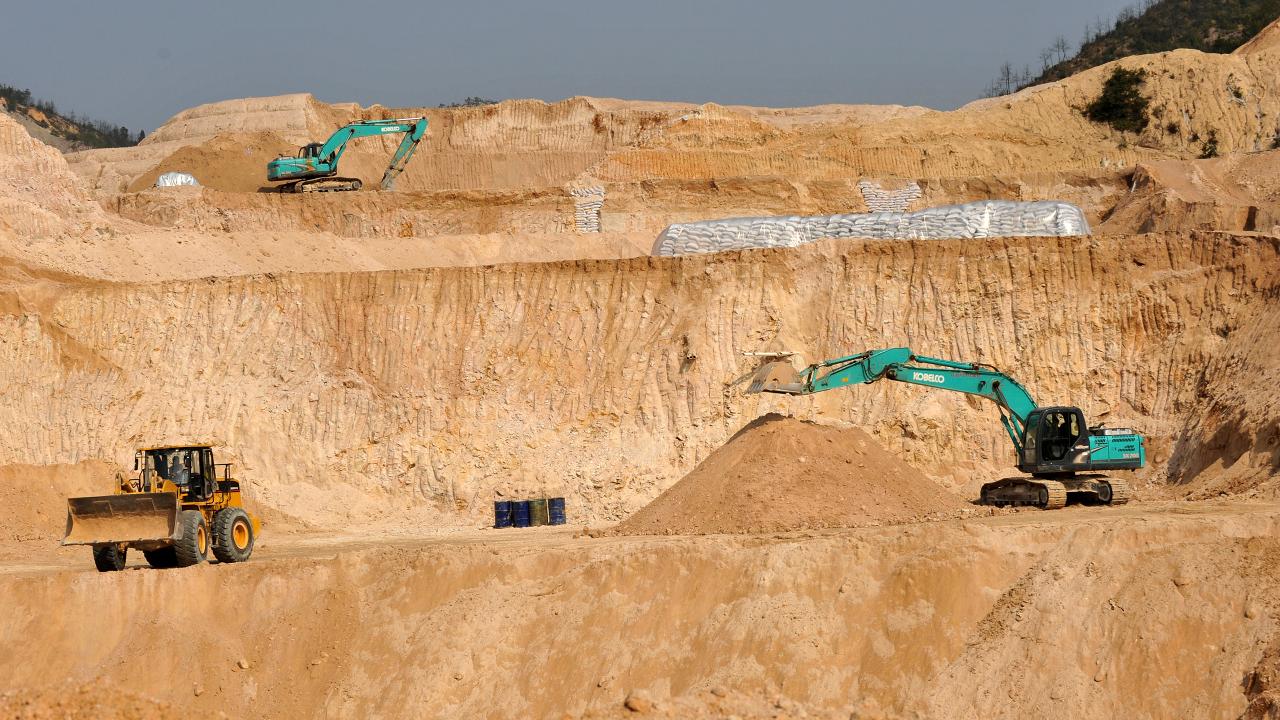Like oil and gas dominance, America can win rare earth production
Blue Line CEO on rare earths: The world is dependent on China for these critical materials
Blue Line CEO Jon Blumenthal on rare earths and the mounting trade war with China.
When faced with natural resource limitations in the past, the United States has turned to independence.
Earlier this decade, oil prices averaged their highest in history, thus squeezing consumers and increasing OPEC’s leverage on global energy markets. Fortunately, a countervailing trend was emerging: America’s untapped energy resources were being explored and produced. Through technological innovations in resource extraction, the United States is now accessing shale oil and gas deposits – and growing good American jobs alongside with it - that have thrust America into the top echelon of global energy producers.
Remarkably, the United States is now the top oil and gas producer in the world. American producers are now even exporting these resources to our allies throughout the world. In less than ten years from the time the U.S. oil export ban was lifted (2015), the United States is projected to be the number one crude oil exporter in the world. By reducing the supply and price influence of OPEC and Russia, global energy markets now have Democracy and the free market as their foundation.
As a result, prices have dropped from the historic highs earlier this decade and have stabilized to a nationwide average below $3 a gallon for gasoline over the past four and a half years, giving the American commuter and economy a boost.
These events did not transpire through happenstance but through a national commitment to put America’s energy future into our own hands.
Today, the United States -- and our allies -- face a similarly uneasy resource scenario, this time in regard to rare earth minerals critical to our technology and defense capabilities. Last week, China state-run media floated the threat of restricting exports of its vast rare earth supply to the United States as retaliation to tough trade negotiations by the Trump administration. This commentary appeared just days after Chinese President Xi Jinping appeared at a rare earth mine for a visit, demonstrating the important role the industry plays in the country’s long-term strategy.
With China responsible for 80 percent of U.S. rare earth imports, such a disruption in supply would threaten American technological leadership which has contributed to peace and prosperity to countries around the world. Rare earths are essential to the production of microchips in our smartphones, rechargeable batteries, and military missile guidance and defense systems, to identify a few uses of the resources.
Saber-rattling or not, this should be a wake-up call to the U.S. and our allies to address our dependence on China.
As America showed with hydraulic fracturing and the shale revolution, innovation and independence doesn’t just change the game, it changes the playing field. It is time the United States apply that same national strategy to rare earth minerals.
This week the Trump administration released a "Federal Strategy to Ensure a Reliable Supply of Critical Minerals." Like all executive action however, it is incumbent upon the United States Congress to take that framework and set a foundation rooted in law.
That starts with a comprehensive audit of our resource base and extends to legislation that will make more federal land available for mining -- much of which would occur in the vast and barren deserts of Nevada and California, where the only U.S. rare earth mine is located. Our propensity to break through established limitations offers a roadmap to renewed rare earth independence.
The good news is Congress isn’t starting from scratch. For years the House of Representatives has identified this looming threat and we have introduced legislation to spur increased domestic production. Today, there is bipartisan support in the House and the Senate for American leadership on rare earth production.
CLICK HERE TO GET THE FOX BUSINESS APP
But it's not just the earth’s surface that holds promise for increased rare earth production. The proliferation of commercial space exploration has established not if, but when missions will reach the moon and beyond. To spur investment, Congress passed legislation in 2015 that would extend property rights to space companies mining in the cosmos -- which include asteroids known to contain precious metals and minerals.
From the earth’s surface to the stars, the United States isn’t sitting back as China looks to use its government control to intimidate free nations. We’ve shown how to fight back against similar circumstances before and we are preparing to do it again.
Congressman Kevin McCarthy proudly serves California’s 23rd district and is currently the Republican Leader in the U.S. House of Representatives.




















